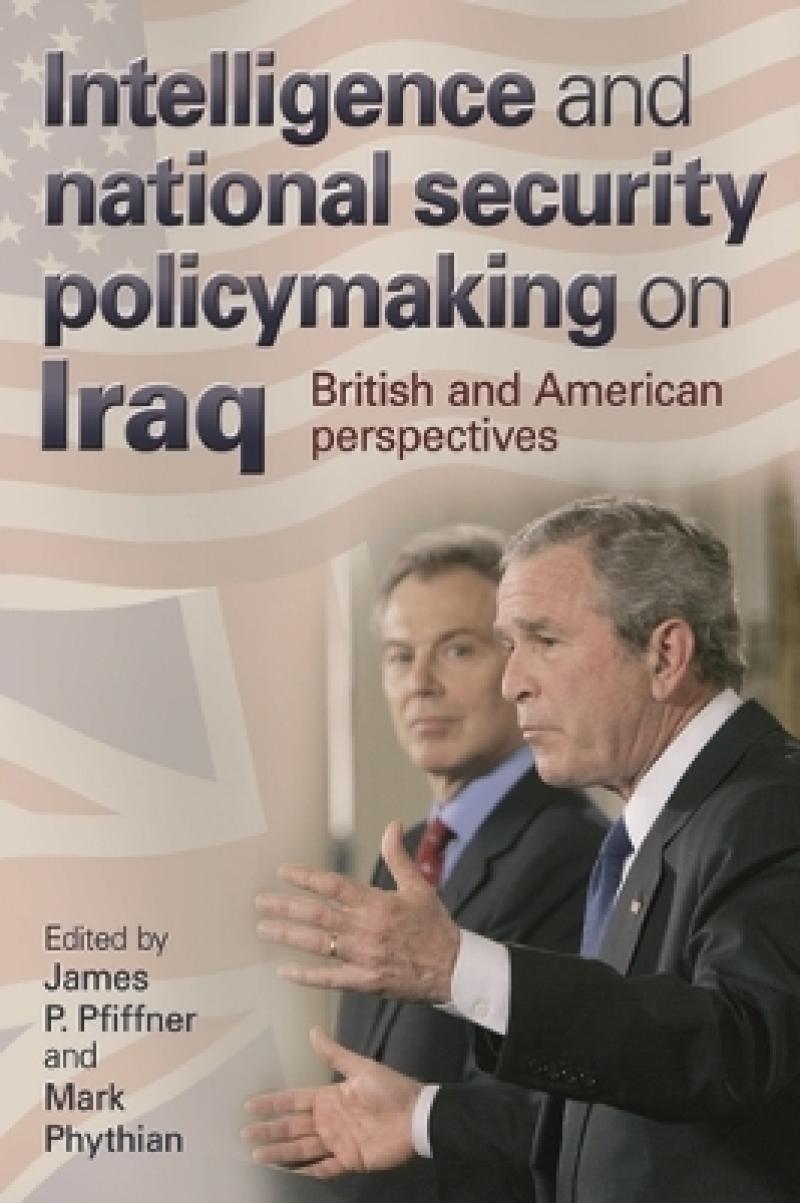The decision to go to war in Iraq has had historic repercussions throughout the world. The editors of this volume bring together scholarly analysis of the decision-making in the U.S and U.K. that led to the war, inside accounts of CIA decision-making, and key speeches and documents related to going to war. The book presents a fascinating case study of decision-making at the highest levels in the United States and Britain as their leaders planned to go to war in Iraq. Just as the Cuban Missile Crisis has been used for decades as a case study in good decision-making, the decision to go to war in Iraq will be analysed for years to come for lessons about what can go wrong in decisions about war.The book presents a fascinating and truly comparative perspective on how President Bush and Prime Minister Blair took their countries to war in Iraq. Each had to convince his legislature and public that war was necessary, and both used intelligence in questionable ways to do so. This book brings together some of the best scholarship and most relevant documents on these important decisions that will reverberate for decades to come.
Les mer
Presents a range of scholarly analyses of how George Bush and Tony Blair used (or misused) intelligence about WMD in taking their countries to war in Iraq. The study includes original excerpts from speeches and reports on the need to go to war and what subsequently went wrong as well as cutting edge analysis of the decision-making involved.
Les mer
List of tables and figuresAcknowledgementsContributors1. Introduction: policy-making and intelligence on Iraq – James P. Pfiffner and Mark PhythianPart I: Intellectual antecedents of the Iraq War2. The neoconservative roots of the war in Iraq – John Dumbrell3. The origins of the British decision to go to war: Tony Blair, humanitarian intervention and the ‘New Doctrine of the International Community’ – Jim WhitmanPart II: The public case for war4. Did President Bush mislead the country in his arguments for war with Iraq? – James P. Pfiffner5. The British road to war: decision-making, intelligence and the case for war in Iraq – Mark Phythian6. Australian use of intelligence and the case for war in Iraq – Rodney Tiffen 7. The Iraq War and the management of American public opinion – John Mueller Part III: Intelligence failure8. Intelligence collection and analysis on Iraq: issues for the intelligence community – Richard Kerr, Thomas Wolfe, Rebecca Donegan, and Aris Pappas9. The politics and psychology of intelligence and intelligence reform – Robert Jervis 10. Congress, the Iraq War, and the failures of intelligence oversight – Loch K. Johnson11. Flawed intelligence, limited oversight: official inquiries into pre-war UK intelligence on Iraq – Mark PhythianPart IV: Policy failure12. Decision-making, intelligence, and the Iraq War – James P. Pfiffner13. Intelligence, policy, and the war in Iraq – Paul R. PillarPart V: Excerpts from key speeches and documents concerning the warAppendix A: Excerpts from key U.S. speeches before the war in IraqAppendix B: Excerpts from key UK speeches and documents before the war in IraqAppendix C: October 2002 National Intelligence estimate: key judgments (excerpts)Appendix D: Excerpts from post-war U.S. investigationsAppendix E: Letter to George Tenet from U.S. intelligence professionals, 28 April 2007
Les mer
The decision to go to war in Iraq has had historic repercussions throughout the world. The editors of this volume bring together scholarly analysis of the decision-making in the U.S and U.K. that led to the war, inside accounts of CIA decision-making, and key speeches and documents related to going to war. The book presents a fascinating case study of decision-making at the highest levels in the United States and Britain as their leaders planned to go to war in Iraq. Just as the Cuban Missile Crisis has been used for decades as a case study in good decision-making, the decision to go to war in Iraq will be analysed for years to come for lessons about what can go wrong in decisions about war.The book presents a fascinating and truly comparative perspective on how President Bush and Prime Minister Blair took their countries to war in Iraq. Each had to convince his legislature and public that war was necessary, and both used intelligence in questionable ways to do so. This book brings together some of the best scholarship and most relevant documents on these important decisions that will reverberate for decades to come.
Les mer
Produktdetaljer
ISBN
9780719077463
Publisert
2008-08-01
Utgiver
Vendor
Manchester University Press
Høyde
234 mm
Bredde
156 mm
Aldersnivå
UU, 05
Språk
Product language
Engelsk
Format
Product format
Innbundet
